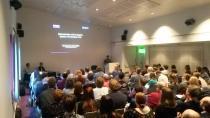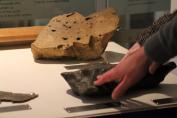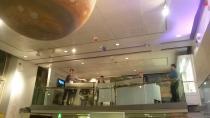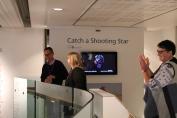Article Main Body
The Isotope Geochemistry and Cosmochemistry Group of The University of Manchester hosted a meeting on extraterrestrial materials on Tuesday 1st November 2016 at the Manchester Museum.
The Isotope Geochemistry and Cosmochemistry Group of The University of Manchester hosted a meeting on extraterrestrial materials on Tuesday 1st November 2016 at the Manchester Museum. The aim of the meeting was to provide an opportunity for the UK planetary science community to come together to discuss current research.The event attracted 82 people from 12 different UK universities / research centres (**listed below), 3 international research institutes**, and a representative from the British and Irish Meteorite Society.
The day involved discussion and a wide range of talks and poster presentations ranging from plans for a future European extraterrestrial sample curation facility, to understanding the ancient martian atmosphere, to where the martian meteorites may have launched from, to the impact history of the Moon and, to the secrets locked up in comet samples returned by the NASA Stardust mission. You can find out more about all the science presentations in the online programme booklet. You can look back at the twitter posts from the event here under #ETM16 and see more photos from the day on the Earth and Solar System Facebook page.
The event was a huge success and it is amazing how vibrant and diverse the cosmochemisty and meteorite community has grown in the last decade, and is continuing to grow as new research is being undertaken across the UK.
The event next year will be hosted by the University of Glasgow and we can't wait for the community to get together again to talk meteorite, Moon, Mars and comet science for the day!
Catch a Shooting Star Exhibit Grand Opening
After the meeting participants celebrated the opening of the new 'Catch a Shooting Star' exhibit at The Manchester Museum. The meteorite touch table and a new display has been developed by the Catch a Shooting Star team, led by our colleagues at the Open University. The exhibit, which has been funded by a public engagement grant by the Science and Technology Facilities Council, is the first permanent display in the UK where you can handle so many different types of meteorites and impact rocks in one place.
Professor Monica Grady from the Open University officially opened the display and was introduced to by the The Manchester Museum's Curator of Earth Science Collection. Prof. Grady gave credit to the exhibit's design team - meteorite researchers Dr Richard Greenwood and Dr Diane Johnson - and cut a ribbon to the cheers of the crowd watching from the mineral gallery below. A fun evening was has by all attending, and we thoroughly recommend that you visit the Museum and see the exhibit for yourselves to touch a piece of the Moon, Mars and asteroids!
Celebration of Prof. Grenville Turner's Birthday
The finality to an already wonderful day was being able to wish Prof. Grenville Turner, who founded the Isotope Group a very happy special Birthday. You can read about Grenville's amazing career here (from developing ground breaking mass spectrometry techniques to being on the first people to work with the Apollo samples) and see his personal perspective of our argon-argon mass spectrometer MS-1 here. A very many Happy Returns to Grenville!
----------------------
**ETM16 Attendees include those from: The University of Manchester; Plymouth University, University of Leicester, Univeristy of Oxford, Natural History Musuem, Birkbeck College, University of Glasgow, University of Durham, University of Portsmouth, the Open University, University of Bristol, NERC isotope Geochemistry Lab, and internationally from Trinity College Dublin, the Natural History Museum Paris and the Museum für Naturkunde Berlin.
This article was written by Katherine Joy, and was originally published on the Earth and Solar System blog.
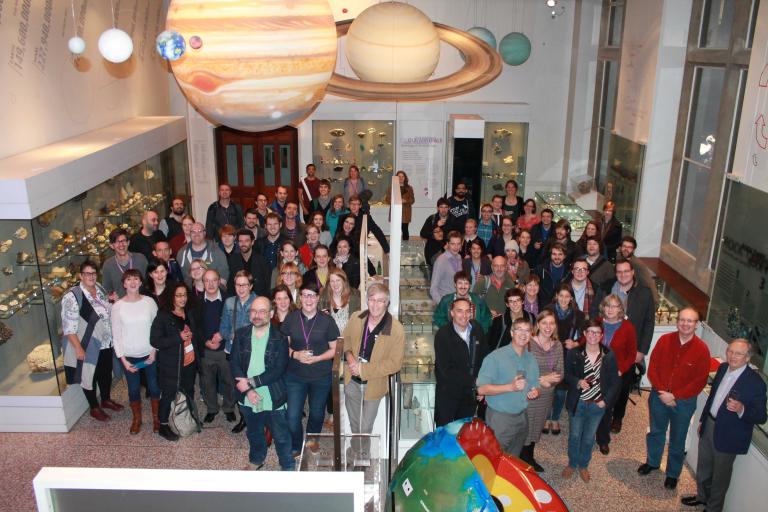 Blog
Blog


